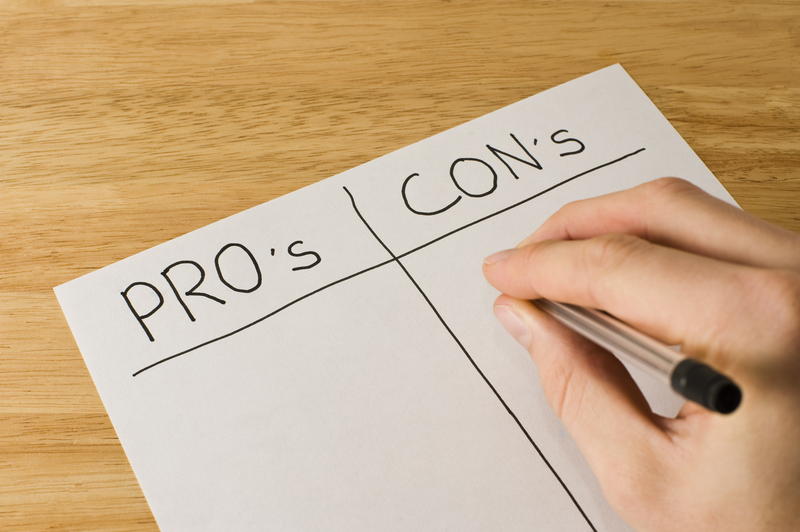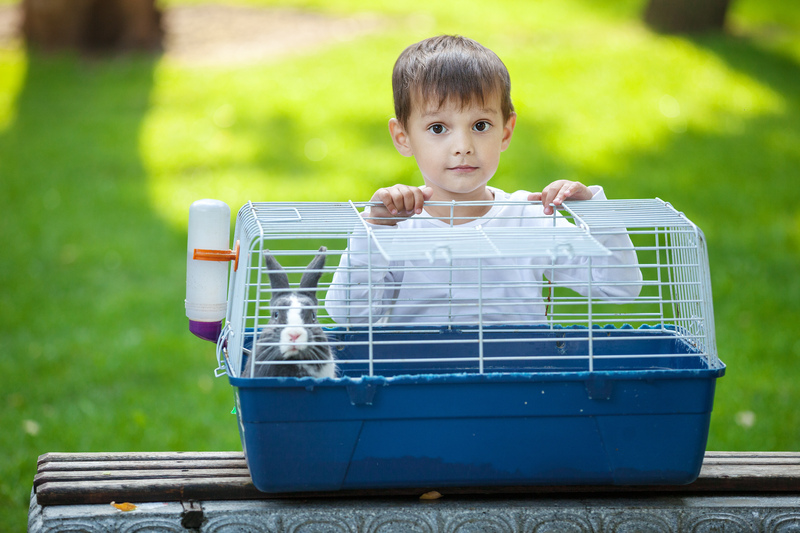A Stepwise Guide to Decluttering Before You Move
Relocating to a new home is both an exciting opportunity and a rigorous undertaking. One of the most crucial tasks to manage before the moving process is decluttering. Not only does a thorough declutter mean a lighter, more organized move, but it also helps you transition into your new home with clarity, reduced stress, and less unnecessary baggage. Whether you're moving across the country or within the same city, this comprehensive guide will arm you with the ultimate stepwise approach to decluttering before your move.
Why Should You Declutter Before Moving?
Before diving into our actionable steps, it's important to emphasize why decluttering before a move matters:
- Reduces Moving Costs: Moving companies often charge based on the total amount or weight of items. Fewer possessions equate to lower costs.
- Makes Packing Simpler: Fewer items make it easier to organize, pack, and unpack.
- Offers a Fresh Start: Letting go of unused or unwanted items paves the way for a cleaner, more intentional living space.
- Eliminates Clutter: You'll move into your new home without excess stuff occupying space.

Step 1: Set Your Decluttering Goals and Timeline
Visualize Your New Home
Start by envisioning how you want your new home to feel and function. This exercise will guide your decisions as you go through your belongings. Ask yourself:
- What kind of lifestyle do I want in my new space?
- Are there items that don't fit this vision?
- Which possessions are truly important or useful to me?
Establish a Clear Timeline
Avoid last-minute hassles by setting a decluttering deadline. Ideally, begin the decluttering process 6-8 weeks before your moving date. Break down the entire home into manageable sections and assign deadlines for each. This transforms a daunting task into achievable milestones.
Step 2: Gather Essential Decluttering Supplies
Before diving in, prepare everything you'll need. Your decluttering process will be smoother and more efficient with the right tools by your side. Assemble:
- Sturdy boxes (for things to keep, donate, or sell)
- Trash bags (for items to toss)
- Labels and markers to categorize boxes and bags
- Sticky notes (to mark or jot down quick reminders)
- Cleaning supplies (to tidy up areas as you empty them)
Step 3: Work Room by Room
The best strategy for effective decluttering before a move is to tackle one room at a time. Trying to declutter the entire house at once can be overwhelming. Instead:
- Start with lesser-used areas like the attic, basement, closets, or guest rooms.
- Move to high-use areas (kitchen, bedrooms, living room) once you build momentum.
Tip: Completing smaller spaces first offers a powerful sense of progress and accomplishment!
Sorting Categories: Keep, Donate, Sell, Recycle, Discard
As you sort, use the five-pile method for efficient decision-making:
- Keep: Items essential for your new home or hold deep sentimental value.
- Donate: Gently used items someone else may benefit from.
- Sell: Valuables that can be sold for extra cash via online marketplaces or garage sales.
- Recycle: Items that can be responsibly recycled.
- Discard: Broken, unusable, or expired goods you cannot recycle.
Step 4: Declutter Specific Rooms--Tips and Recommendations
Living Room & Family Spaces
- Books, DVDs, Magazines: Keep favorites and current reads; donate or recycle the rest.
- Decor and Art Pieces: Assess if they'll fit or match your new home's style.
- Furniture: Consider room sizes in your new home; sell pieces that won't fit or you no longer need.
Kitchen & Pantry
- Small Appliances: Only keep those you use regularly.
- Utensils and Gadgets: Weed out duplicates or seldom-used items.
- Expired Foods: Dispose of anything past its prime, and keep only sealed, firm items for moving.
- Dishes & Containers: Sort through Tupperware and toss any missing lids or cracked items.
Bedrooms
- Clothing: Try the "one year rule"--if you haven't worn it in 12 months, donate or discard.
- Jewelry and Accessories: Organize, keep only what you cherish, and donate extras.
- Bedding: Discard torn or stained linen; pack only sets you regularly use.
Bathrooms
- Medications: Safely dispose of expired medicines at a pharmacy.
- Toiletries: Keep current products; discard old or unused items.
- Towels: Donate excess towels, especially if worn or unused.
Garage, Attic & Basement
- Tools: Keep essentials; sell or recycle duplicates or seldom-used items.
- Outdoor Gear: Evaluate seasonal items, sports equipment, and holiday decor.
- Paint, Chemicals, Batteries: Check local disposal policies for safe elimination.
Step 5: Take Action--Selling, Donating, Recycling, and Disposing
Once you have your sorted piles, make a plan for quick removal:
- Sell Online or Offline: Platforms like eBay, Facebook Marketplace, Craigslist, and Nextdoor facilitate quick sales. Host a garage sale for fast clearing.
- Donate to Charities: Organizations such as Goodwill, Salvation Army, or local shelters are ideal for clothes, furniture, or usable goods.
- Recycle Responsibly: Electronics, plastics, metals, and certain appliances should be recycled. Check your town's municipal recycling program for specific guidelines.
- Safe Disposal: For items that can't be reused or recycled, schedule a bulky-waste pickup or visit your local landfill.
Handle these steps quickly to prevent re-cluttering and to keep your home ready for efficient packing.
Step 6: Organize What You're Keeping for the Move
Now that you have only your must-have belongings, it's time for a little pre-packing organization. This step will both streamline the packing process and make it much easier to unpack in your new home:
- Group Similar Items: Store related items together to save time during packing and unpacking.
- Label Boxes and Containers: As you organize, start labeling contents and intended rooms.
- Pack Non-Essentials First: Items not needed in everyday life can go into boxes early!
- Create an Inventory List: Track what you're moving for both insurance and organization.
Step 7: Maintain Decluttered Spaces Until Move-Out Day
To avoid undoing your hard work:
- Resist the urge to buy new items until you've moved into your new home.
- Keep decluttered areas tidy and avoid letting things accumulate again.
- Encourage family members or housemates to participate and help maintain progress.
Your pre-move environment will be cleaner, more organized, and far less stressful!
Bonus: Tips for Decluttering with Kids and Family
Decluttering with a family or kids can require extra patience and planning.
- Involve Everyone: Allocate age-appropriate tasks. Let kids decide which toys or clothes to keep.
- Explain the Reason: Let children know why decluttering is helpful--less to pack, more space in the new home.
- Reward Efforts: Acknowledge their help with a treat or a special family activity.
Decluttering Before Moving: Common Challenges and How to Overcome Them
- Sentimental Attachment: It's tough to part with some items. Allow yourself to keep truly meaningful items, but not everything with a memory. Take photos of items you can't keep but still want to remember.
- Time Constraints: If moving suddenly, focus on high-impact areas and be aggressive with decision-making.
- Decision Fatigue: If you're feeling overwhelmed, take short breaks, or invite a friend for an honest second opinion.
Environmentally-Friendly Decluttering Tips
Moving is an opportunity to make eco-friendly choices:
- Donate Before Disposing: Many charities are grateful for household goods, clothes, and even non-perishable food.
- Organize a Swap: Have a swap party with friends or neighbors for books, games, or clothes.
- Resell Before Buying New: Use the income from sold items to purchase essentials once you're settled, reducing waste.
After Decluttering: Prepare for Your Move
- Start Packing Early: With fewer items, you can now focus on strategic packing, starting with non-essentials.
- Schedule Movers or Transportation: Knowing your final item count allows you to book appropriately sized moving services.
- Update Your Inventory: Keep a digital or written list of all boxes and number them for seamless move-in organization.

Frequently Asked Questions About Pre-Move Decluttering
- When should I start decluttering before a move? Begin at least 6-8 weeks prior, working through one room per week.
- Should I declutter even if I'm using professional packers? Yes! Professional packers will pack everything unless you remove unwanted items first, which can increase costs and effort.
- What if I regret getting rid of something? Focus on what you're gaining: a fresh start. For deeply sentimental items, consider digital keepsakes (like photos of children's art, awards, or memorable, larger possessions).
Conclusion: Make Your Move Easier With Proper Decluttering
Decluttering before a move isn't just about clearing physical space--it's about embracing a new chapter with intention and lightness. This stepwise guide to decluttering before you move provides proven techniques for sorting, purging, and organizing your belongings efficiently.
Take your time, tackle tasks in manageable stages, and enjoy the satisfaction of letting go. You'll arrive at your new home with only the items that serve your family's future, saving time, money, and energy along the way.
Remember: An organized move is a happier move!



